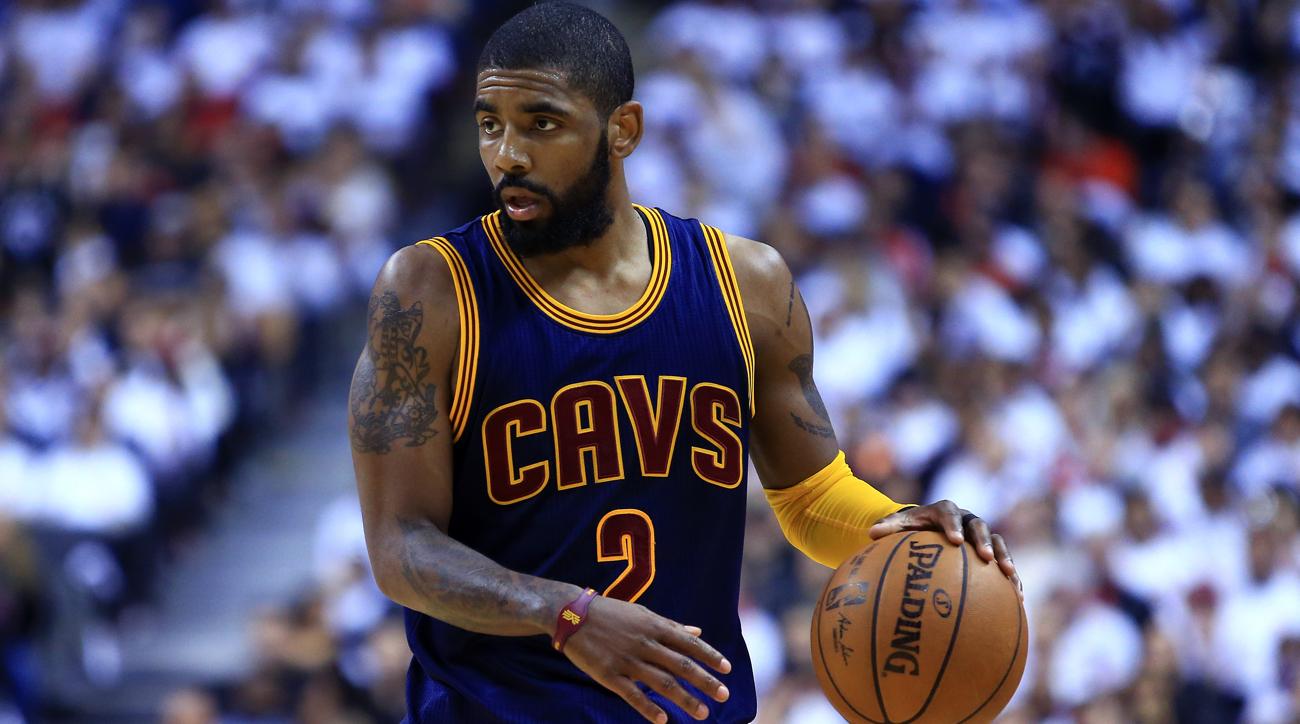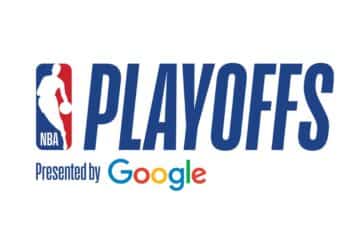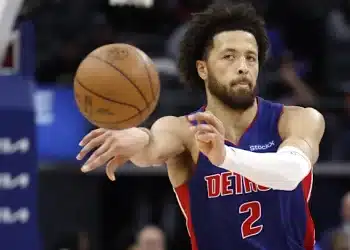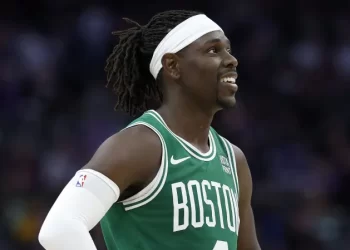By: Jeffrey Newholm
In the popular fable of The Fisherman And His Wife, a fisherman lucks into catching a magical prince. His wife repeatedly insists on his returning to the prince to grant her increasingly extravagant wishes, until the fish tires of her greed and returns the couple to their original impoverished state. Kyrie Irving could well be likened to the wife in this fable. Did he not play on one of the most talented teams in the league? Did the Cavs not have a monopoly of power in the East? Didn’t Lebron shoulder the bulk of the burden of the team’s scoring? Irving risks losing everything in the quest to achieve more. But I think there’s a compelling rationale to abandon the only team Irving’s ever known in the pros, and the potential gain could provide a fulfillment he never would have achieved in Cleveland.
Great men often humbly speak of “standing on the shoulders of giants”. But there’s a difference between standing on the shoulder of a giant and being lost in one’s shadow. In Green Bay, Aaron Rodgers took advantage of the framework created by Brett Favre, but is clearly differentiated from him. The long line of Yankee legends from the past boost the prestige of each new hot player in the Bronx. But before Lebron in Cleveland, there was nothing at all. When James was playing in Miami, Irving put up strong numbers for a lottery team. When the King returned, Kyrie put up similarly strong numbers for a now championship-caliber contender. And he could have continued to play second fiddle for a talented team. But surely, Irving thought, there must be something more to life than this.
The All-American sentiment of reaching for one’s dreams makes it rather odd to shoot to be #2. How many kids dress up as Robin for Halloween? How many fans from the Windy City own a Scottie Pippen jersey, but not one of Jordan? What number of Patriots fans proudly wear 2007 AFC Championship gear? No one should certainly complain about being second greatest of all time, but if there’s a window to move up, it makes perfect sense to jump through it. Perhaps a reminder of his own mortality goaded Irving into looking for a larger role.
After fracturing his kneecap in the 2015 Finals, Irving had to watch Lebron’s one man bandwagon come up woefully short, and then miss half of the next season working on rehab. He managed to recover to put up career numbers, but for a team hopelessly outmatched by Golden State. Boston, to be sure, would probably be a similarly large underdog against the dubs in 2018. But isn’t it better to go down swinging, than to wait and hope the cleanup man can drive you in? Irving is now the unquestioned head of his own team, in a new town, with a fanbase hungry for a winner. With the Celtics, Kyrie can now write his own fate; in Cleveland, all he was going to be was a footnote.
Fans tend to judge based on a sheer number of wins. Jordan is superior to Lebron, because he won more. Coach K is the best college coach, because he has the most wins. Boston is the most prestigious NBA franchise, because they’ve won the most titles. But I think that numbers have little to do with a authentic satisfaction in life, especially because winning is fundamentally transient. Just as property rights is justified by one’s “mixing one’s labor with land”, pride comes from a great thrust of effort primarily of one’s own. True, Irving could end up just like the fisherman’s wife, with the Cavs or another Superteam sweeping Boston into the dustpan. But nothing in life comes without some sort of a roll of the dice. And it just doesn’t do to settle on blowing on someone else’s.


 NFL
NFL





